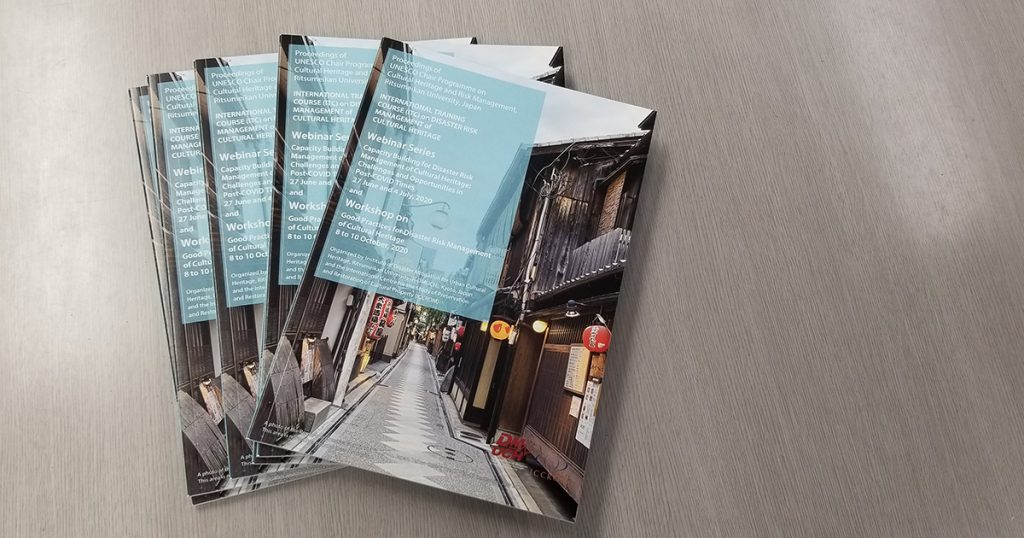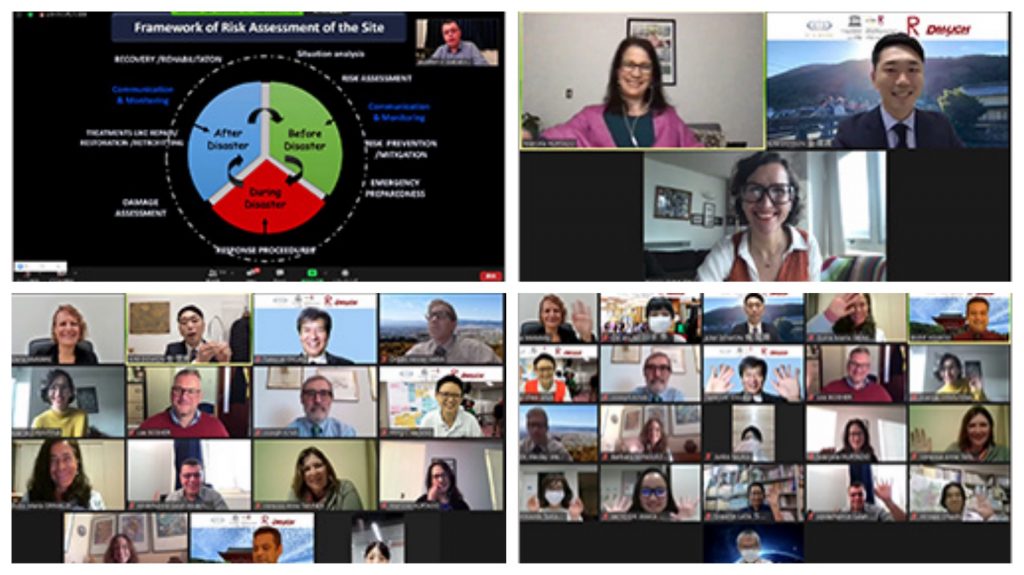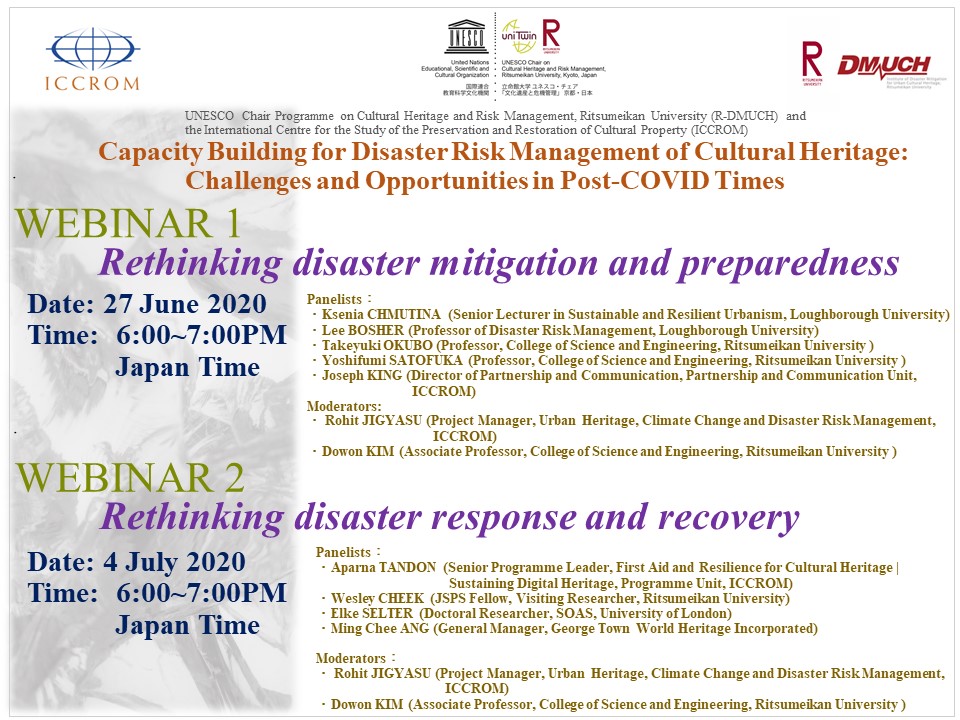Proceedings of UNESCO Chair Programme on Cultural Heritage and Risk Management, ITC 2020
The proceedings of UNESCO Chair Programme on Cultural Heritage and Risk Management, ITC 2020 are now published. It contains the proceedings of Webinar Series “Capacity Building for Disaster Risk Management of Cultural Heritage: Challenges and Opportunities in Post-COVID Times”, held on 27 June and 4 July, 2020 and a brief report of Workshop on Good Practices for Disaster Risk Management of Cultural Heritage held on 8 to 10 October, 2020.
Proceedings of UNESCO Chair Programme on Cultural Heritage and Risk Management, ITC 2020 Read More »



